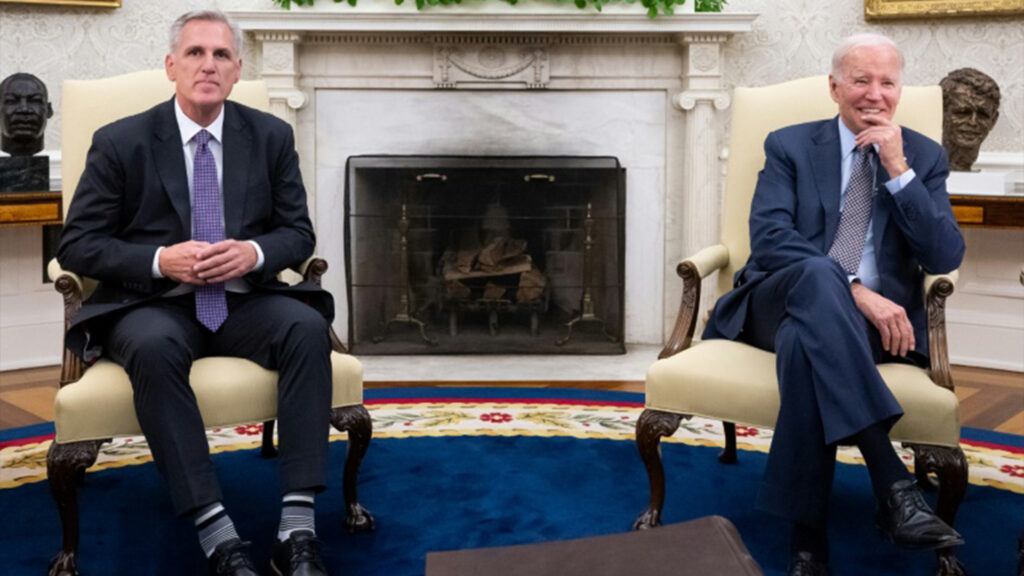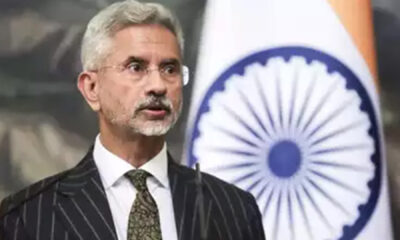World
Inside the Dramatic Debt Ceiling Negotiations
After weeks of tense negotiations, President Joe Biden and House Republicans have tentatively reached an agreement on the debt ceiling and spending limit.

President Joe Biden and House Republicans tentatively reached a debt ceiling and spending limit deal after weeks of tense negotiations. The agreement is a big step forward, but both parties must now win over their members, many of whom are wary of certain provisions.
Discrepancies and uncertainties cloud the proceedings as the agreement details emerge. We know this from a House Republican fact sheet and a reliable source close to the negotiations.
The agreement raises the debt limit for two years, averting a financial crisis. This crucial aspect ensures government continuity and fiscal stability.
The deal limits non-defense spending. Non-defense spending will grow slightly in 2024 and 2025, subject to appropriations adjustments. The agreement sets appropriations targets after fiscal 2025, but enforcement is uncertain.
The House GOP fact sheet proposes rolling back non-defense discretionary spending to fiscal 2022 levels and capping federal spending growth at 1% for six years. Defence spending was protected.
“Biden and House Republicans Forge Tentative Deal on Debt Ceiling and Spending”

Dramatic Debt Ceiling Negotiations
The agreement ensures veterans’ medical care is fully funded. It also increases the PACT Act’s toxic exposure fund by nearly $15 billion in fiscal year 2024, demonstrating the commitment to veterans’ healthcare.
Work requirements for food stamp-eligible adults are controversial. The deal temporarily broadens work requirements but raises the age limit to 54 or 55, according to the GOP fact sheet.
Veterans, homeless people, and other SNAP recipients would be exempted, balancing self-sufficiency with extenuating circumstances. Work requirement changes will end in 2030. The agreement does not include Medicaid work requirements, a House Republican demand.
The agreement seeks to recover unspent funds from the pandemic relief packages to reduce federal spending. This step ensures efficient use of the estimated $4.5 trillion in remaining funds.
The agreement also eliminates the IRS’s fiscal year 2023 staffing request. House Republicans say this prevents funding for additional IRS agents, fearing intrusions and audits. However, the IRS claims that funding is needed to support operations, improve customer service technology, and help taxpayers comply.

-

 India2 years ago
India2 years agoOpposition to Skip New Parliament Building Inauguration
-

 India2 years ago
India2 years agoNew Parliament Inaugurated by PM Modi, Opposition boycott
-

 Fashion2 years ago
Fashion2 years agoNandita Das: Cannes is to Celebrate Films, Not Fashion
-

 Tech2 years ago
Tech2 years agoAdobe Announces New Generative AI Features in Photoshop
-

 India2 years ago
India2 years agoRBI to Withdraw ₹ 2,000 Notes from Circulation
-

 India2 years ago
India2 years agoJaishankar: Oppn shouldn’t politicize Parliament launch
-

 India2 years ago
India2 years agoKejriwal Meets Oppn Leaders to Mobilize Against Ordinance
-

 Entertainment2 years ago
Entertainment2 years agoDrishyam Franchise to Expand to Korea with Official Remake



